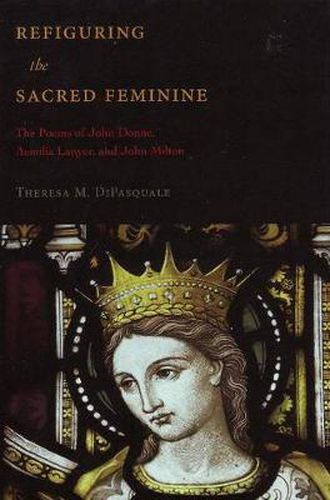Readings Newsletter
Become a Readings Member to make your shopping experience even easier.
Sign in or sign up for free!
You’re not far away from qualifying for FREE standard shipping within Australia
You’ve qualified for FREE standard shipping within Australia
The cart is loading…






Theresa M. DiPasquale’s study of John Donne, Aemilia Lanyer, and John Milton demonstrates how each of these seventeenth century English poets revised, reformed, and renewed the Judeo-Christian tradition of the sacred feminine. The central figures of this tradition–divine Wisdom, created Wisdom, the Bride, the Blessed Virgin Mary, and Ecclesia–are essential to the works of Donne, Lanyer, and Milton. All three poets are deeply invested in the ancient, scripturally authorized belief that the relationship between God and humankind is gendered: God is father, bridegroom, king; the human soul and the church as corporate entity are daughter, bride, and consort. This important text not only casts new light on these poets and on the history of Christian doctrine and belief, but also makes enormous contributions to our understanding of the feminine more broadly. It will be of interest to scholars who study the Literary Studies, religion, and culture of early modern England, to feminist theologians, and to any reader grappling seriously with gender issues in Christian theology and spirituality.
$9.00 standard shipping within Australia
FREE standard shipping within Australia for orders over $100.00
Express & International shipping calculated at checkout
Theresa M. DiPasquale’s study of John Donne, Aemilia Lanyer, and John Milton demonstrates how each of these seventeenth century English poets revised, reformed, and renewed the Judeo-Christian tradition of the sacred feminine. The central figures of this tradition–divine Wisdom, created Wisdom, the Bride, the Blessed Virgin Mary, and Ecclesia–are essential to the works of Donne, Lanyer, and Milton. All three poets are deeply invested in the ancient, scripturally authorized belief that the relationship between God and humankind is gendered: God is father, bridegroom, king; the human soul and the church as corporate entity are daughter, bride, and consort. This important text not only casts new light on these poets and on the history of Christian doctrine and belief, but also makes enormous contributions to our understanding of the feminine more broadly. It will be of interest to scholars who study the Literary Studies, religion, and culture of early modern England, to feminist theologians, and to any reader grappling seriously with gender issues in Christian theology and spirituality.